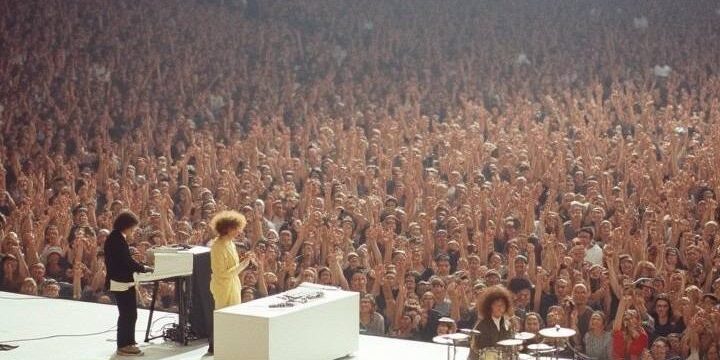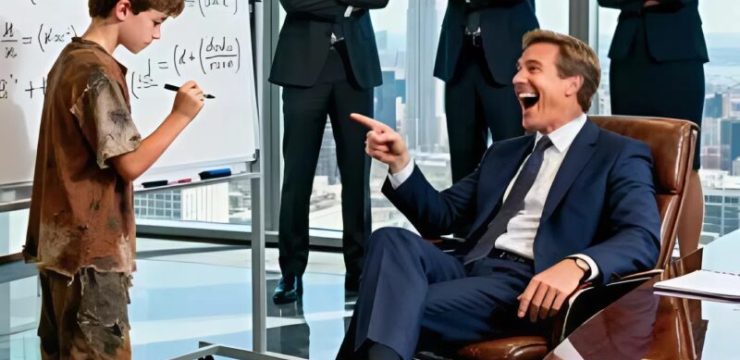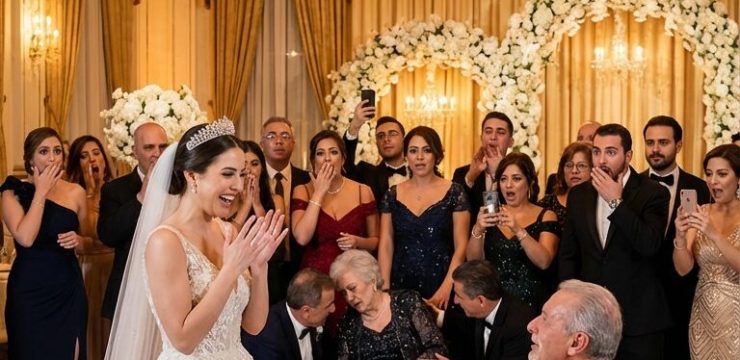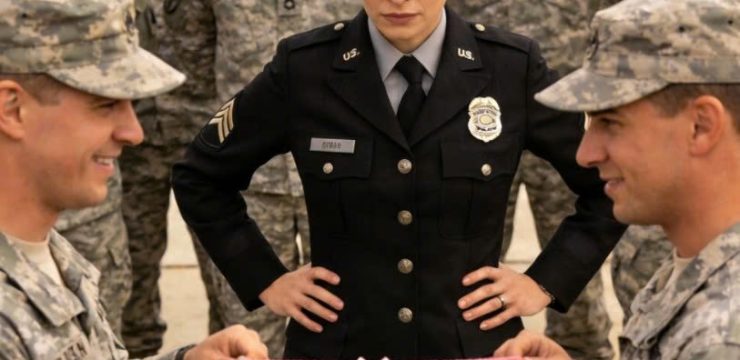Back in ninth grade, I had long hair I cherished more than anything—it was my identity, my comfort, and my pride. Then, without warning, my mom dragged me to a barbershop and told the barber to cut it all off, “like a boy,” she said. I cried, begged her to stop, but she kept insisting it be shorter. The barber hesitated, clearly uncomfortable, glancing at me in the mirror with apologetic eyes, but my mother’s stern stare kept him going.

When he was done, I looked in the mirror and didn’t recognize the girl staring back. My head felt lighter, but my chest felt heavier than ever. As I stepped down from the chair, tears streamed down my face, and though no one in the shop said a word, I felt every single eye on me. Outside, my mother said nothing, just grabbed my wrist and dragged me to the bus stop. Every sound, every crack in the sidewalk, every cold gust of wind was etched in my memory, and I couldn’t stop wondering what I had done to deserve this. That night, I locked myself in the bathroom and stared at my reflection for what felt like hours. My hair, which once flowed down my back and made me feel beautiful, was now cropped to barely cover my ears.
I felt stripped, like my flaws were on full display. The next day at school was brutal. Whispers followed me, people laughed, and the boy I had a crush on stifled a giggle. I wanted to melt into the floor. Friends tried to say comforting things like “It’s just hair,” but they didn’t get it. It wasn’t just hair—it was a part of me I didn’t choose to lose. Over the next few weeks, I avoided mirrors, wore hoodies with oversized hoods, sat alone at lunch, and my grades dropped. Teachers asked if everything was okay, and I’d fake a smile and nod. My mom never noticed—or maybe she did and didn’t care. One night, I finally asked her why she made me cut it. Her response? “You were getting too vain. I wanted to teach you a lesson.” Then she turned back to scrolling on her phone. Something inside me broke. Months passed, my hair slowly grew back, but the memories didn’t fade.
I remembered the sound of the scissors, the smell of the shop, the sting of betrayal. I started spending time in the library, losing myself in books about girls who had survived worse and found healing. I started to hope that maybe one day, my mom would say sorry. Then, in the spring, a new girl named Nura transferred to our school. She had even shorter hair than I’d ever had, but she wore it with pride. She sat next to me, complimented my hoodie, and by the end of class, we were laughing together. Nura told me she’d cut her hair by choice to donate to kids with cancer. That simple act of generosity made me realize how different it felt to cut your hair by choice rather than force.
Eventually, I told Nura my story. She didn’t pity me; she simply held my hand and said, “Hair grows back—and so does your spirit.” That moment marked a turning point. I began shedding the hoodies, holding my head high, engaging in class again, and slowly reconnecting with others. The boy I used to like tried to talk to me again, but I no longer needed his attention. Nura and I became inseparable. At home, things stayed tense. Mom and I barely spoke. Then one night, I found her crying over a pile of bills. I didn’t comfort her—I didn’t know how. A week later, I came home to find her sitting on my bed. She looked exhausted and vulnerable. She patted the space beside her and admitted, “I know I hurt you. I didn’t mean to. I was scared and losing control.” It was the first time she took responsibility. We sat in silence, holding hands. That moment didn’t fix everything, but it was a start. Over time, we began rebuilding. We had more conversations, fewer fights. We watched movies, baked cookies, and reconnected.
My hair grew longer, and so did my confidence. By the end of tenth grade, I got my hair trimmed at a salon—my choice. Mom came along, flipping through magazines. I told the stylist I wanted soft layers with waves. When I saw myself in the mirror, I nearly cried—not from sadness, but from the joy of finally seeing myself again. People at school noticed, but I didn’t care what they thought anymore. I joined the debate team and won “Most Improved Speaker.” Mom clapped louder than anyone at the ceremony. That summer, Nura and I launched a hair donation club called “Locks of Hope.” We organized events and helped provide wigs to children with cancer. Mom even baked cookies for our fundraiser. Seeing a little girl cry happy tears while trying on her new wig made me realize how far I had come. That girl reminded me of the version of myself who thought everything was over because of a haircut—but now, I knew better. Mom and I continued to open up. She shared stories about her own strict upbringing and perfectionist mother. I began to see her as a human being, not just my mother. We cried, laughed, and slowly healed. At the start of eleventh grade, I gave a speech about our club and shared my story. People cried, teachers nodded, and students later told me how much it meant to them. I realized my pain had become a purpose. I don’t know if Mom and I will ever be perfect, but we now talk instead of shutting each other out. She tells me she’s proud, and I tell her I love her. We slip sometimes, but we come back to each other. Looking back, that awful haircut changed everything. It broke me, but it also built me. It taught me strength, forgiveness, and how to grow beyond pain. If you’re going through something hard—know this: you’ll make it. You are stronger than your worst moment. And sometimes, the thing that hurts the most is what leads you to who you were meant to be.





